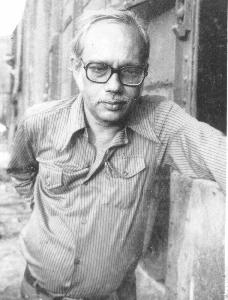This article needs additional citations for verification .(January 2011) (Learn how and when to remove this template message) |
Jabo Na Keno? Jabo (যাবো না কেন? যাবো in Bengali) is the second column collection of Bangladeshi-born feminist and secular humanist writer Taslima Nasrin (তসলিমা নাসরিন).

Bengali, also known by its endonym Bangla, is an Indo-Aryan language primarily spoken by the Bengalis in South Asia. It is the official and most widely spoken language of Bangladesh and second most widely spoken of the 22 scheduled languages of India, behind Hindi. In 2015, 160 million speakers were reported for Bangladesh, and the 2011 Indian census counted another 100 million.

Bangladesh, officially the People's Republic of Bangladesh, is a sovereign country in South Asia. It shares land borders with India and Myanmar (Burma). The country's maritime territory in the Bay of Bengal is roughly equal to the size of its land area. Bangladesh is the world's eighth most populous country as well as its most densely-populated, to the exclusion of small island nations and city-states. Dhaka is its capital and largest city, followed by Chittagong, which has the country's largest port. Bangladesh forms the largest and easternmost part of the Bengal region. Bangladeshis include people from a range of ethnic groups and religions. Bengalis, who speak the official Bengali language, make up 98% of the population. The politically dominant Bengali Muslims make the nation the world's third largest Muslim-majority country. Islam is the official religion of Bangladesh.

Taslima Nasrin is a Bangladeshi-Swedish author and former physician who has been living in exile since 1994. From a literary profile as a poet in the late 1970s, she gained global attention by the beginning of 1990s owing to her essays and novels with feminist views and criticism of what she characterizes as all "misogynistic" religions including Islam.


